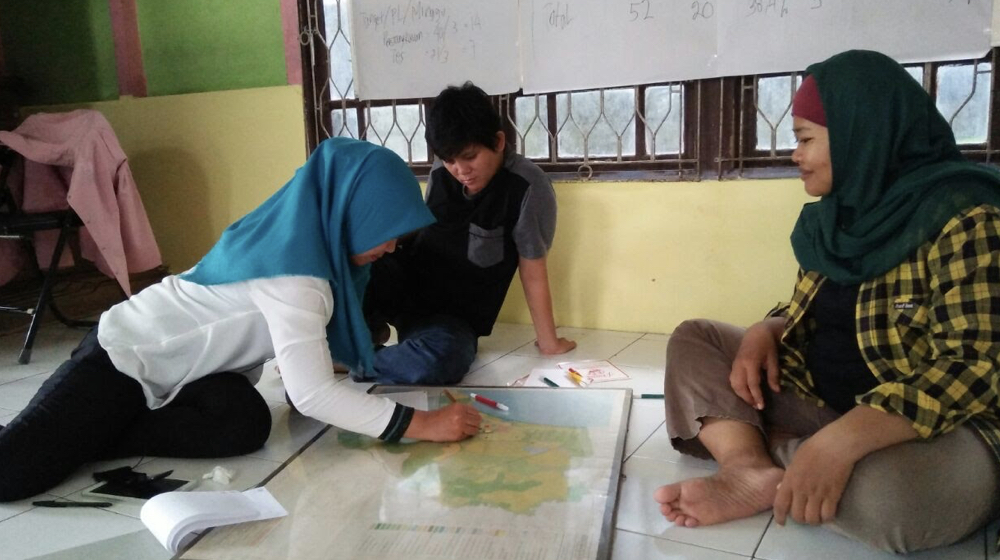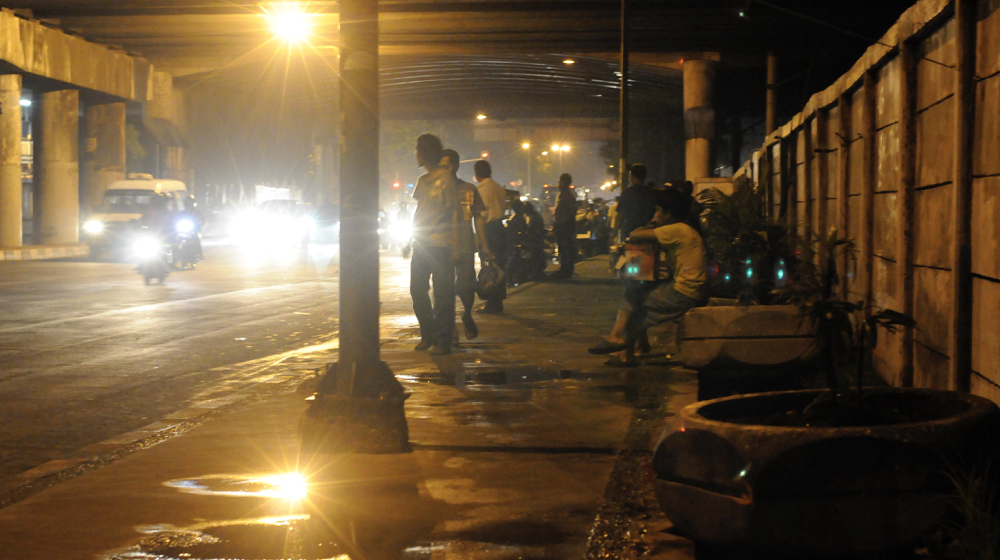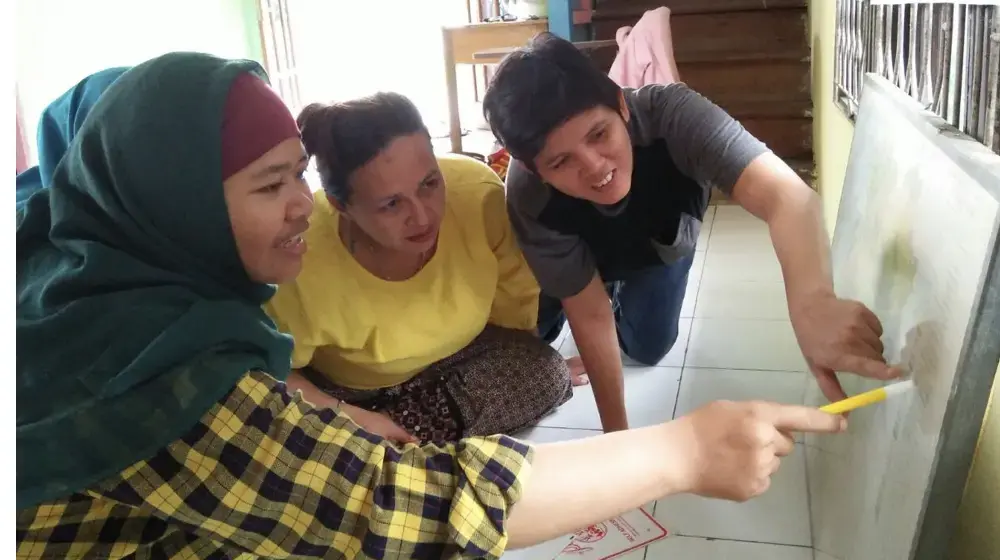“For female sex workers with disabilities, there will be more layers of vulnerability”
“For female sex workers with disabilities, there will be more layers of vulnerability”
Muvitasari works for the PKBI (Indonesia Planned Parenthood Association) DKI Jakarta Chapter, which implements a sex worker outreach programme. PKBI DKI coordinates 16 organizations who deliver programmes for female sex workers across 26 districts in Indonesia.
Muvitasari works on one of the projects that focuses on preventing both HIV and gender-based violence among female sex workers. The project provides information and services to help protect female sex workers, including those living with a range of disabilities, including those who are Deaf or are hard of hearing, are visually imparied or may live with psycho-social disabilities.
She points out that female sex workers face multiple types of violence including physical, psychological, economic and sexual violence. “We know that the situation is difficult for female sex workers in general, in Indonesia. They often face violence from their clients and from their boyfriends or their pimps. That is why we have combined traditional HIV outreach with information about gender-based violence and response services.”
“We know that the situation is difficult for female sex workers in general, in Indonesia. They often face violence from their clients and from their boyfriends or their pimps. That is why we have combined traditional HIV outreach with information about gender-based violence and response services.”
The project has underscored the dependency of female sex workers on their partner and put a spotlight on how disability adds more complexity to that power dynamic. Muvitasari says power dynamics affecting female sex workers in a male-dominated society remain imabalanced with police, clients, pimps, local gang members and even the partners of the women all reported to be regular abusers.
Muvitasari and partners provide training about intimate partner violence (IPV). They also train up sex workers as peer leaders and peer educators, who then provide information to other sex workers about IPV. “Many female sex workers love their partners and it is difficult to discuss with them that violence is violence, even if it's carried out by their partner. Even if they love their partner, it is still violence.”
Importantly, the project has also demonstrated the need to focus on female sex workers with disabilities, says Muvitasari. “We found that for these women, there are even more layers of vulnerability.”
“We gather female sex workers with disabilities in our network to translate and interpret the health information. Peer leaders and educators seek help from other sex workers to interpret or explain information in a language or communication method understood by sex workers with disabilities.
Many female sex workers with disabilities cannot access public health materials, or may have difficulty understanding health information. The programme produces content in readily accesible formats, adapted to the needs of each individual, depending on their type of impairment, educational background and preferences.
Often information must be translated into local languages to increase understanding of the information. For sex workers who are Deaf or are hard of hearing and/or are visually impaired, this means braille, sign language and digital solutions like screen reader formats or making materials with large fonts or pictures. For sex workers with other disabilities, there is a need for accessible face-to-face counselling and two-way conversations, as well as visual resources to get the messages across.
Getting information into the hands of these very vulnerable individuals is critical. “We gather female sex workers with disabilities in our network to translate and interpret the health information. Peer leaders and educators seek help from other sex workers to interpret or explain information in a language or communication method understood by sex workers with disabilities.

Muvitasari says another challenge is that “sex workers with disabilities are often excluded by their own communities which makes them more vulnerable. Some in the community call them abusive names and sometimes clients refuse to pay them.”
She says opening the space for conversations about violence is a good first step. “We provide a training or capacity-strengthening session about gender-based violence, intimate partner violence, HIV and other sexually transmitted infections. It is new for us to address this and to provide this support for female sex workers.”
The next step is engaging colleagues from social services to conduct counselling and provide mental health services for sex workers with disabilities. “There is a big gap in the treatment and support that we currently provide. The goal is to develop sex worker networks and get organizations that have the same perspective as us to provide that support.”
"The services the government provides must include all minorities. All minority groups are citizens
and they have rights.”
“Sex workers who have disabilities still need a lot of support,” Muvitasari says. “While they continue to work as sex workers, we try to support them with skills that will help them stay safe.”
The project also advocates for local governments to help sex workers with public funds. “We remind them to go back to the truth: we should be leaving no one behind. The services the government provides must include all minorities. All minority groups are citizens and they have rights.”

Learn more
Implementing comprehensive HIV/STI programmes with sex workers (SWIT)
We Decide: Including and empowering persons with disabilities
Easy Read Materials
Easy Read: Violence against People with Disabilities because of their Gender During COVID-19
Easy Read: Life for women and girls with disabilities in the world during COVID-19


